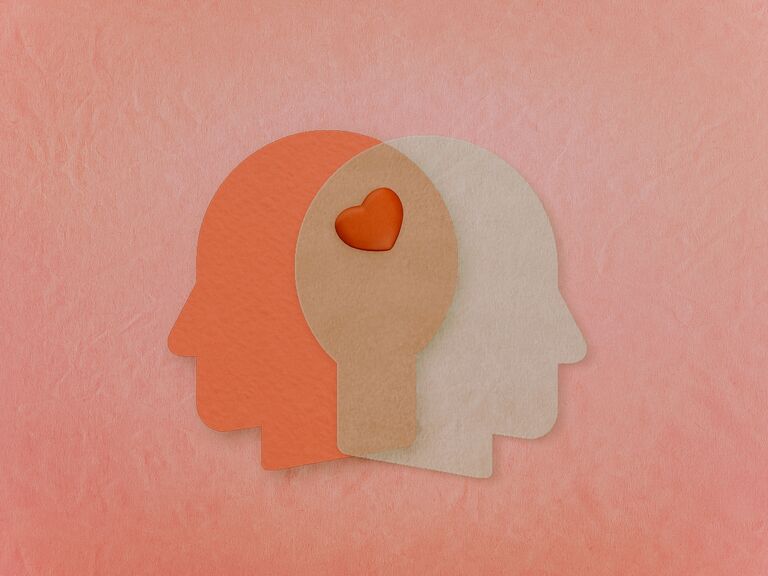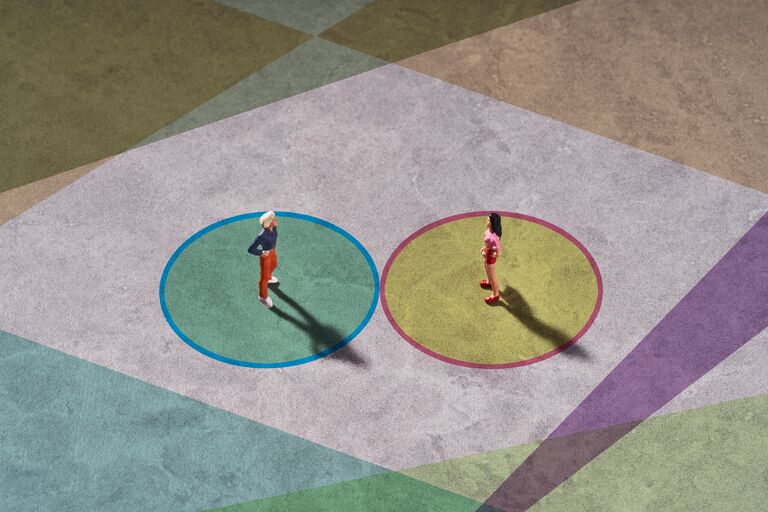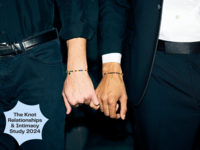Do Opposites Attract in a Relationship? Experts Weigh In

We've all heard opposites attract (a theory popularized by a 1950s research study), but is there any truth to this belief? To find out, we spoke with experts and real couples about these types of relationships and whether they work. In short, pairings of opposites can be extremely productive and meaningful—so long as couples put in the effort to meet the challenges they bring. For the answer to the age-old question of whether opposites attract, along with tips on navigating differences in romantic relationships, read below.
In This Article:
- Do Opposites Really Attract?
- Why Do Opposites Attract?
- The Pros of Opposite Personalities in a Relationship
- Cons of Opposite Personalities in a Relationship
- Tips for Making These Relationships Work
Do Opposites Really Attract?

"Opposites attract" is a cliche that lacks support by research on close relationships, says Angela Bahns, Associate Professor of Psychology, Wellesley College. "There is a wealth of evidence that people choose romantic partners who are similar to them in all kinds of ways, including attitudes, values, personalities, and activity preferences," she adds. Youyou Wu, Lecturer in Psychology (Assistant Professor), University College London, agrees. "There is little evidence that people are attracted to others with opposite personalities," she says. In fact, her research shows romantic partners tend to have similar personalities.
Dr. Helen Fisher, Senior Research Fellow, The Kinsey Institute, backs up their views—at least when it comes to people with certain personality types. About a decade ago, she scanned the brains of nearly 40,000 single Americans of all ages, ethnic groups, and regions of the country. Based on her research, she showed that humans evolved foundational forms of personality styles linked with different neurotransmitter or hormone systems.
Specifically, she found that some people are attracted to those like themselves. People dominant in serotonin (who have a more traditional, conventional, and cautious bent) are predisposed towards others who are also dominant in serotonin. Similarly, those dominant in dopamine (who have a more adventurous, creative, and novelty-seeking style) are predisposed towards others who are also dominant in dopamine.
Conversely, she found that opposites do attract for those dominant in testosterone or estrogen. Those dominant in testosterone tend to have a more assertive, analytical, decisive, skeptical, and tough-minded nature. Meanwhile, those dominant in estrogen are usually more trusting, nurturing, imaginative, diplomatic, and verbal. These opposing types are predisposed towards each other.
Bahns provides some support for Fisher's theory, explaining that "the one area of personality where there is some (limited) support for the idea that opposites attract is on the dimension of dominance versus submission. People who are high on dominance tend to be attracted to people who are more submissive or low on dominance. This pattern is called 'complementarity.'" She adds that some research has found evidence that complementarity in same-sex peer relationships predicts long-term relationship satisfaction.
Why Do Opposites Attract?

High-testosterone and high-estrogen people are drawn to their opposites for evolutionary or adaptive reasons, Fisher explains. A million years ago, when they raised kids together, their different outlooks made for a strong team, she adds. "They are built to work together. They can have a very strong partnership, but they must learn to appreciate their differences."
To illustrate these dynamics, Fisher says that high-estrogen partners will be socially skilled, tenderhearted, and patient with children, while high-testosterone partners will be less socially skilled, more tough-minded, and more adventurous with children. High-testosterone partners will be more decisive, while high-estrogen partners will be more indecisive. Each partner will help balance the other one out.
The Pros of Opposite Personalities in a Relationship

With negative personality traits, it's helpful to choose a partner who's different, says Arthur Aron, Research Professor, Department of Psychology, Stony Brook University. "If you have a negative trait, like anger, you might not want more of it in your life." Plus, if you find your partner's differences interesting, think you could manage them, and are optimistic about the relationship overall, personality opposites can be a plus, he adds.
The differences between high-testosterone and high-estrogen partners might look like issues or problems, says Fisher. However, this lack of similarly can mean complementarity, where each partner brings a unique set of valuable assets to the relationship and helps their mate, she explains. As another benefit, because partners will be charmed and mystified by their loved ones, these couples will have wonderful conversations, she adds. "The high-testosterone partner will go for the deep and narrow, while the high-estrogen partner will go for the broad and long-term. If they can appreciate each other's intellect, they'll be wonderful additions to each other's worlds."
Fisher also explains why pairing like-with-like doesn't work as well when it comes to high-testosterone and high-estrogen couples. When high-testosterone individuals choose mates with similar personalities, they're more likely to quarrel and compete, Fisher predicts. Similarly, if two high-estrogen people partner up, they might struggle to make decisions. "I knew a couple where both partners were high-estrogen and they spent hours each night talking about their feelings," relates Fisher. They're no longer together.
Cons of Opposite Personalities in a Relationship

"Opposite personalities introduce conflict into a relationship and forego the benefits that come from having a shared perspective on the world," says Bahns. Her research bolsters the view that similarity breeds comfort, validation, and a stable sense of self—suggesting that differences can lead to discomfort and a less stable sense of self.
With high testosterone-high estrogen couples, partners might not understand each other, says Fisher. The high testosterone partner will wonder why their high estrogen partner isn't more decisive; while the high estrogen partner will struggle to comprehend how their high testosterone partner can be so blunt with people.
Fisher raises the biggest possible con and also, a dealbreaker, with these pairings. High testosterone people can be predisposed towards violence and high estrogen people to codependency—with the latter remaining in relationships even when they become abusive. (Editor's note: If this is a situation you or a loved one is facing, consider contacting the National Domestic Violence Hotline by dialing 1-800-799-SAFE or by texting LOVEIS to 22522.)
Tips for Making These Relationships Work

Bond Over Your Values
Focus on what you do have in common, whether it's shared attitudes, values, or activity preferences, suggests Bahn. "If areas of difference are causing conflict, try to shift attention to areas of similarity and shared experience." Plus, have accurate and realistic expectations about these differences, says Wu.
Be Sensitive to Your Partner's Worldview
Susan, a high-estrogen woman married for 20-plus years to her high-testosterone partner, Mike, agrees. "You have to have a heightened awareness that your partner may not approach a situation in the same way you would," she says. "And you shouldn't have expectations that your partner will always understand your needs."
Appreciate Your Partner
Overall, try to maintain a positive view of your mate and their traits, suggests Wu.
Perhaps most importantly, listen to them and appreciate their differences, Fisher adds. "You must respect your opposite. Otherwise, it becomes a problem," says Susan. Mike feels similarly, advising couples to "look at the other side—that's an asset. Be willing to listen to the other person and let the small stuff go. On the bigger issues, it's a negotiation, and you won't always get your way."
Talk It Out–and Listen
Tina and Evan, together for 21 years and married for 16, share similar sentiments. "Communication is key," says Tina. "Be willing to be vulnerable and admit when you were wrong and to share ideas you might not think your partner will receive well," she adds. Plus, carve out a regular time to connect, Evan suggests. "If you find your relationship is a lot of hard work, that doesn't mean it's not working. It means that you're working…"
"And that means growth," concludes Tina, finishing her partner's sentence perfectly.























